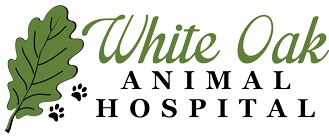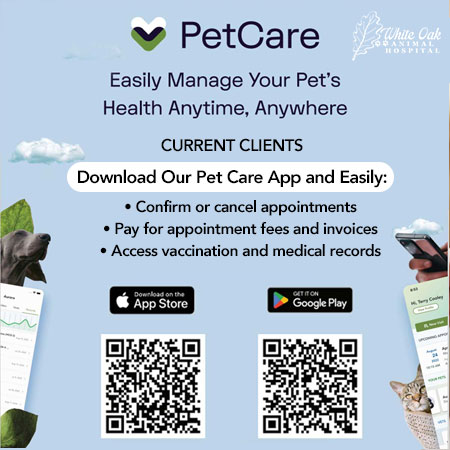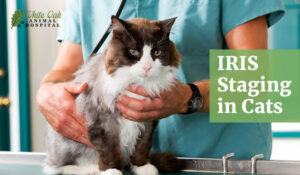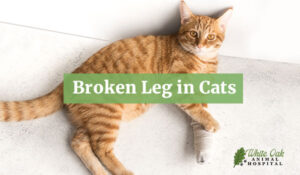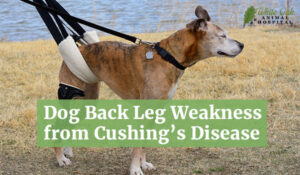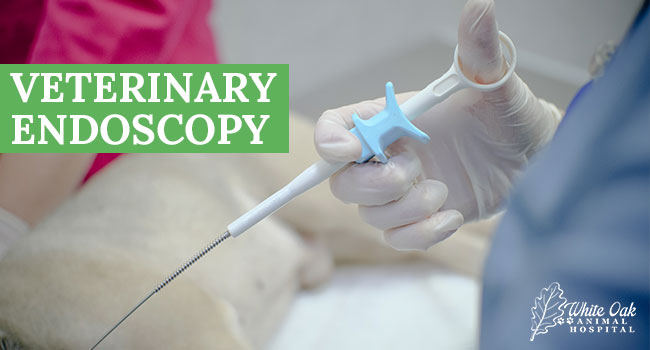
Discover a breakthrough in pet healthcare with veterinary endoscopy at White Oak Animal Hospital. This minimally invasive procedure offers a safe and effective examination of your pet’s gastrointestinal system, supporting their well-being naturally.
Why Veterinary Endoscopy?
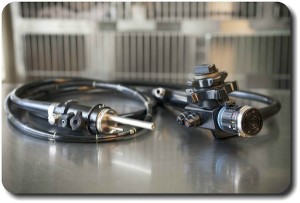 When diagnosing and treating gastrointestinal issues, endoscopy stands out as a premier choice. It utilizes an endoscope—a slender, flexible tube with a camera at its tip—to provide a clear view of inside your pet’s body without the need for surgery. This innovative approach offers several benefits:
When diagnosing and treating gastrointestinal issues, endoscopy stands out as a premier choice. It utilizes an endoscope—a slender, flexible tube with a camera at its tip—to provide a clear view of inside your pet’s body without the need for surgery. This innovative approach offers several benefits:
- Precision: Endoscopy facilitates accurate diagnoses and tailored treatments by exploring the oral, esophageal, stomach, and colon regions. It also allows for the extraction of foreign objects without invasive surgery.
- Chronic GI disorder diagnosis: Endoscopy is highly effective in identifying chronic gastrointestinal disorders such as chronic vomiting, diarrhea, and ulcers, providing relief for your pet.
- Efficient: This scientifically proven technique empowers you to navigate and visualize your pet’s GI tract efficiently and comprehensively.
What Happens During a Veterinary Endoscopy Procedure?
While endoscopy is a straightforward procedure, anesthesia is necessary to ensure a comprehensive and accurate examination of your pet’s health. Under sedation or general anesthesia, a slim, flexible endoscope (about the size of your ring finger) is gently inserted into the area needing examination.
This advanced tool enables the visualization of various abnormalities like tumors, polyps, inflammation, and signs of bleeding. In some cases, air may be introduced to ensure a more thorough examination.
Typically, veterinary endoscopy lasts around 15-20 minutes. Your pet must fast for at least 24 hours before the procedure to ensure a smooth and successful examination.
While the process requires careful preparation and the administration of anesthesia, it prioritizes your pet’s health and comfort for the best possible care.
Diseases Diagnosed Via Endoscopy
Veterinary endoscopy can diagnose and treat a wide range of conditions, including:
- Inflammatory Bowel Disease
- Colitis
- Esophageal Strictures
- Foreign Bodies
- Tumors
- Gastric Ulcers
The procedure is minimally invasive, minimizing recovery time and the need for large incisions. It can be safely performed in our veterinary clinic or hospital.
Trust White Oak Animal Hospital for your pet’s gastrointestinal endoscopy needs.
We offer a comprehensive approach to your pet’s health, ensuring their comfort and well-being throughout the process.
Contact us today to schedule an appointment and discover the benefits of this innovative procedure for your beloved pet.
People Also Ask
What is veterinary endoscopy, and how does it work?
Veterinary endoscopy is a minimally invasive procedure that uses a flexible tube with a camera at its tip (endoscope) to examine internal organs and structures. The endoscope provides real-time images, allowing veterinarians to diagnose and treat various gastrointestinal, respiratory, and other conditions without the need for surgery.
Is veterinary endoscopy safe for my pet?
Yes, veterinary endoscopy is generally safe for pets when performed by a trained and experienced veterinarian. The procedure is minimally invasive and typically involves the use of anesthesia to ensure your pet’s comfort and safety during the examination.
What conditions can veterinary endoscopy diagnose or treat?
Veterinary endoscopy can diagnose and treat a range of conditions, including gastrointestinal disorders (e.g., inflammatory bowel disease, colitis, gastric ulcers), respiratory issues (e.g., airway obstructions, lung abnormalities), and other problems such as foreign body removal, tumors, and strictures.
How should I prepare my pet for an endoscopy procedure?
To prepare your pet for endoscopy, you will need to follow your veterinarian’s instructions carefully. This typically includes fasting your pet for at least 24 hours before the procedure to ensure a successful examination. Your veterinarian may also provide other specific instructions based on your pet’s individual needs.
How long does it take for my pet to recover from an endoscopy procedure?
Recovery from an endoscopy procedure is usually quick, as it is minimally invasive. Your pet may be groggy for a few hours after the anesthesia, but most pets can resume normal activities within a day. Your veterinarian will provide you with post-procedure care instructions to ensure a smooth recovery for your pet.
How long does a veterinary endoscopy procedure typically take?
Veterinary endoscopy procedures usually take around 15-20 minutes, depending on the area being examined and the complexity of the case.
Will my pet need to stay overnight after an endoscopy procedure?
Most pets can go home the same day as the procedure after the effects of anesthesia have worn off. However, your veterinarian may recommend an overnight stay for observation in certain cases.
Can veterinary endoscopy be used to perform biopsies?
Yes, veterinary endoscopy can be used to obtain tissue samples (biopsies) from internal organs for further diagnostic evaluation. This is a minimally invasive method that avoids the need for surgery.
What are the risks of veterinary endoscopy?
Veterinary endoscopy is a safe procedure with minimal risks when performed by experienced veterinarians. Potential risks include minor bleeding or infection, but these are rare. Your veterinarian will discuss any specific risks based on your pet’s health.
Can endoscopy replace surgery for certain conditions in pets?
In many cases, endoscopy can be an alternative to surgery for diagnosing and treating conditions such as foreign body removal or biopsies. It offers a less invasive option with quicker recovery times, but some conditions may still require surgical intervention.
